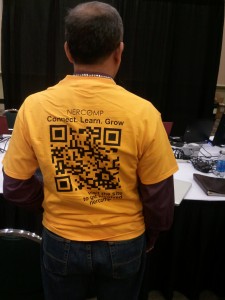I heard a very interesting & timely piece on NPR this evening – “The Most Secure Password In The World Might Be You” I strongly encourage you to listen to it or read about it. It is a quick review of how some big tech firms are predicting that the passwords are dead and biometrics are the way to go. The proliferation of systems that requires us to authenticate and the hodgepodge of rules for strong passwords have created a nightmare. Most users have the same password for accessing everything and worse, it is also an easily guessable password. Biometrics on the other hand relies on you as a person to do something to identify yourself to the systems – either a finger swipe, or retinal scan or a voice recognition system along with a pass phrase. Just the same way the passwords has weaknesses, each of these also have weaknesses, but they certainly have clear advantages. One of them is that you don’t need to maintain multiple passwords! Each of the biometric methods exploit the fact that they are unique to the person. One of the arguments made in favor of biometrics is that stealing the info is not scalable. That is, whereas millions of passwords stored on a server can be hacked and unencrypted in hours or days, it is hard to imagine stealing fingerprints and retinas on that scale, especially anonymously! However, some form of fingerprints and retinal scans must be saved somewhere in order to verify that it is yours. It is quite possible that these can be hacked and transmitted in some fashion to fool the system. This is pure speculation on my part, of course! If you ask me, I would like to see the passwords dead in favor of a more reliable and easy to use authentication system, but I don’t think passwords will be die that soon.
Clayton Christensen reminded yet again in NY Times this past weekend about the disruptions taking place in Higher Ed – “Innovations Imperative: Change Everything“. Thunderbird School of Management merging with Laureate Education, for example. Is this just the start of something bigger to come?
We are trying very hard to be tuned into major advances and disruptions that are taking place. The Advisory Committee on Library and Technology Policies (ACLTP) has begun an overview of Library trends in order to understand disruptions in managing Collections and understand what services we should be prepared to provide. We are excited because such collaborative planning for the future always pays hefty dividends.
